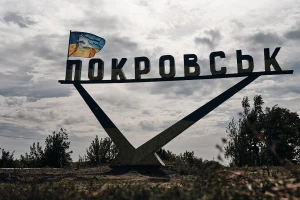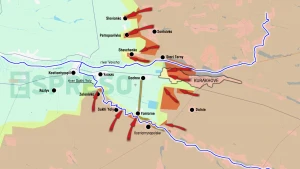
EU sees no threat to Hungary, Slovakia from Ukraine's sanctions against Russian Lukoil
The European Commission continues to analyze the situation with oil supplies to Hungary and Slovakia following Ukraine’s halt of the transit of Russian Lukoil. However, the EU currently sees no impact of sanctions on the volume of oil supplies through the Druzhba pipeline
European Commission spokesman Balazs Ujvari announced this at a briefing, reports European Pravda.
He noted that, to address the situation, European Commission services have been in communication with the governments of Ukraine, Hungary, and Slovakia.
"From the information we have at our disposal and based on the internal analysis by the European Commission, it seems that the sanctions imposed by Ukraine against Lukoil do not affect the current transit of oil through the Druzhba pipeline, as Lukoil is not the official owner of this oil," Ujvari said.
He added that the European Commission is still waiting for more detailed explanations from Budapest and Bratislava to verify its findings.
"I can also confirm that the European Commission services have tentatively concluded that urgent consultations are not warranted at this stage, as there is no indication of an urgent risk to supply security," the spokesman said.
Termination of Russian Lukoil oil transit through Ukraine
Oil from the Russian company Lukoil has stopped coming to Slovakia and Hungary because of Ukraine's sanctions. Hungarian Foreign Minister Péter Szijjártó said that Ukraine's decision was “incomprehensible and unacceptable.”
On Saturday, July 20, Slovak Prime Minister Robert Fico spoke by phone with his Ukrainian counterpart Denys Shmyhal, criticizing the addition of the Russian oil company Lukoil, whose oil was also used by the Slovak oil refinery Slovnafta, to the sanctions list.
On July 22, Hungarian Foreign Minister Péter Szijjártó said that Ukraine's decision to stop the transit of oil from the Russian company Lukoil threatens the security of energy supplies to his country and Slovakia, so Hungary may initiate a legal action.
On July 23, Hungary and Slovakia initiated a European Commission committee meeting due to Ukraine's ban on Lukoil's oil transit.
On the same day, Hungarian Foreign Minister Péter Szijjártó said that his country would continue to block €6.5 billion in EU military aid to Ukraine if Kyiv did not resume the transit of Russian Lukoil oil through its territory.
On July 24, Slovak President Peter Pellegrini announced that Bratislava may take “indefinite reciprocal measures” in response to Ukraine stopping the transit of Lukoil's Russian oil through its territory.
On July 30, the Ukrainian Foreign Ministry announced that Ukraine is ready to hold consultations with the EU regarding the suspension of Lukoil's oil transit.
- News












































